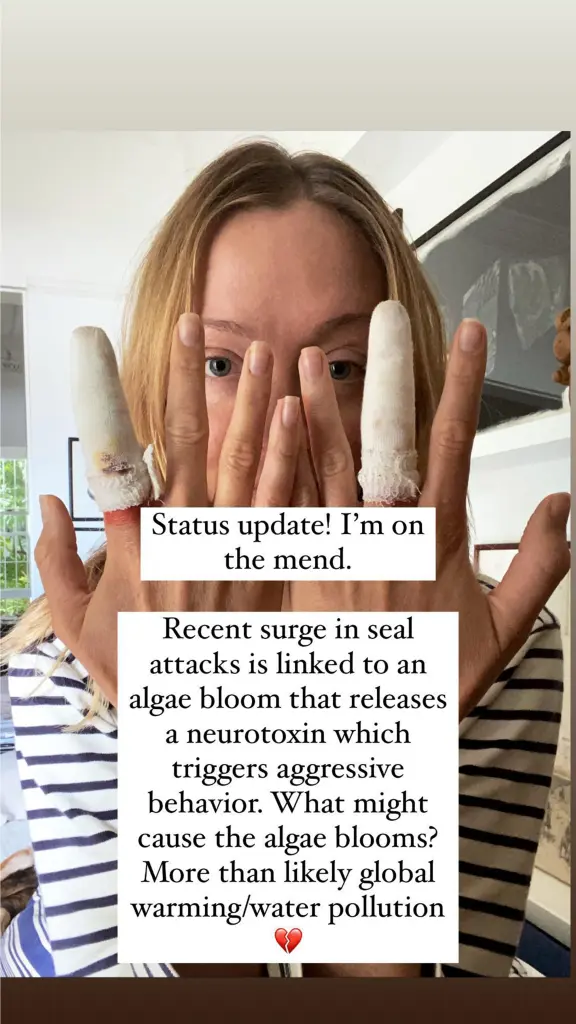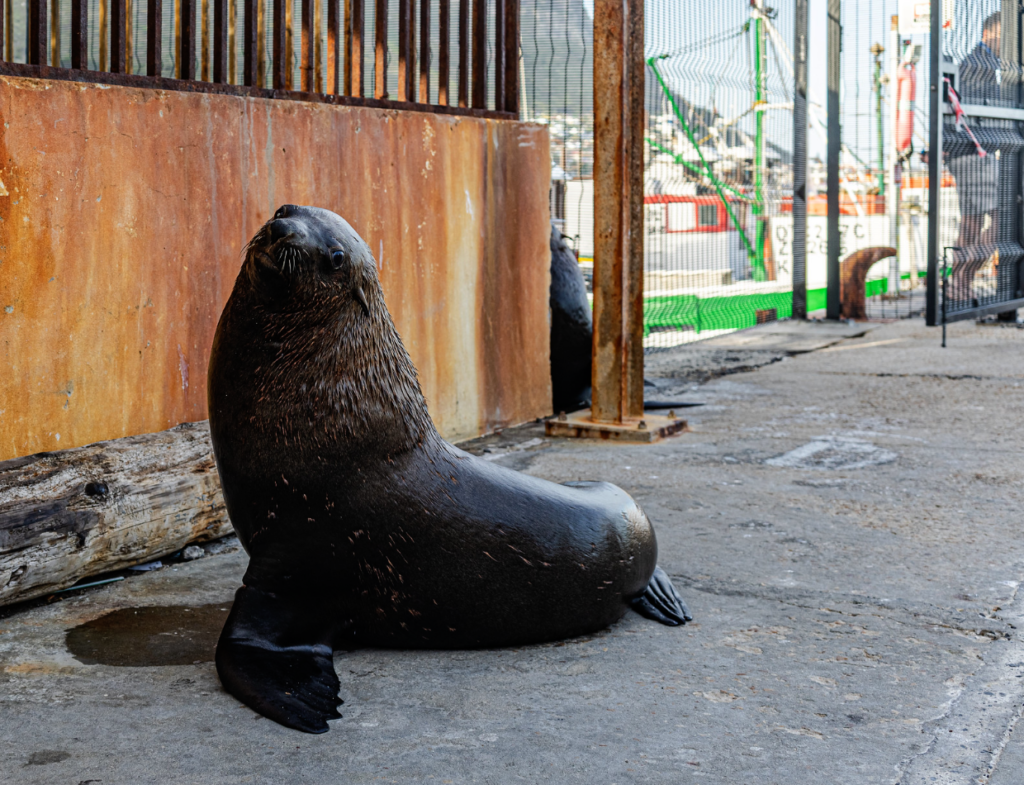Cape Town, South Africa, known for its great white sharks, is facing a new threat: rabid seals. In a significant outbreak, 11 seals have been found with rabies, marking the first major occurrence of the disease among marine mammals. The World Health Organization estimates rabies kills 55,000 people annually, mainly in Africa and Asia, with 98% of human cases arising from dog bites. The last UK case was in 2018, when a person was bitten by a cat in Morocco.
Gregg Oelofse, head of coastal management at Cape Town council, recounted an incident where a seal’s appearance while he was surfing caused everyone to paddle away quickly. In June 2024, a seal attacked three surfers near Muizenberg Beach, biting one and chewing on his surfboard. Actress Loulou Taylor, best known for “Raised by Wolves,” was bitten six times by a seal at Clifton Fourth Beach in 2023. Initially attributing the seal’s aggression to algae bloom neurotoxins, rabies was later identified as the cause.

A Hout Bay Seal Rescue Centre (HBSRC) employee defended the seals, stating that trauma from people shouting and beating a small seal, weighing only about 22 lbs (10 kg), led to its aggressive behaviouxr. Recent months have also seen aggressive seals at Fish Hoek and Noordhoek. Four seals were euthanised and tested for rabies; three tested positive, with the number now at 11.
Rabies is widespread among many wild animals in southern Africa, like jackals, but these mostly avoid humans. Rabies in humans is rare in South Africa. Scientists from the University of Pretoria are analysing the virus to determine its origin and how it spread to seals.
Seal aggression increased significantly in late 2021, leading to collaboration between Cape Town’s coastal team, the local research body Sea Search and the Society for the Prevention of Cruelty to Animals to test seals for rabies. The last known case of a rabid seal was in Norway’s Svalbard islands in 1980.
Oelofse emphasised that the increase in cases doesn’t indicate an exponential outbreak. Fortunately, Sea Search had retained 120 seal brains over the past two-and-a-half years, aiding in determining the spread of rabies.
Swimmers and surfers in Cape Town are urged to seek immediate medical attention if bitten by a seal. Rabies can take from a week to two years to manifest. There is no cure for rabies, but vaccination within 24 hours is essential to prevent it from being fatal.
Oelofse noted that although he believes “quite a few” people have been bitten by rabid seals, no humans have been infected, possibly due to the saltwater in the seals’ mouths reducing the viral load. There are about two million seals from southern Angola to Algoa Bay on South Africa’s eastern coast. Marine biologist Dr. Greg Hofmeyr explained that seals, which live closely in colonies, could rapidly spread rabies through saliva.

Experts suggest rabies likely reached seals via a bite from a domestic dog or jackal. Canine distemper has previously crossed from land animals to seals in southern Africa. Lifeguards and shark spotters have been instructed to close beaches if they see aggressive seals. The public is advised to report unusual seal behaviour, keep dogs leashed and maintain distance from seals in harbors. Signs of rabies in wild animals include convulsions, lack of fear, unusual sounds and unprovoked aggression.
Oelofse advises against panicking but stresses any unusual or aggressive seal behaviour should be reported. He expressed concern about rabies spreading further or infecting other animals, noting that seals and surfers interact closely every day.
Jami Marnitz, who oversees snorkeling trips, warned of the dangers of rabid seals, describing them as having “cherry-red, evil eyes” and relentless behavior. She shared an experience where a rabid seal damaged her boat’s pontoon during an interview on the TV program “Carte Blanche.”





















